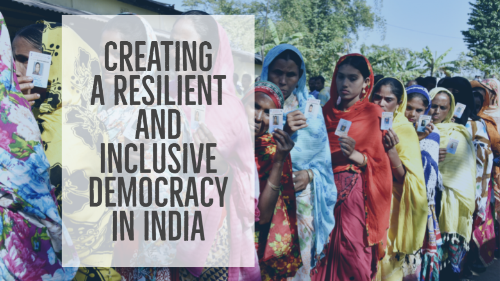 With the general elections in India having concluded in May, many observers are now analyzing the implications of the electoral outcomes on the world’s largest democracy. Yet such analyses of the country often overlook the ability of citizens, especially women, to participate in politics beyond elections.
With the general elections in India having concluded in May, many observers are now analyzing the implications of the electoral outcomes on the world’s largest democracy. Yet such analyses of the country often overlook the ability of citizens, especially women, to participate in politics beyond elections.
While multiple factors hinder women’s full participation in the public sphere, the prevalence of sexual violence is among the most significant. Such violence is linked to the low overall status of women in society, which has skewed birth ratios, limited access to education and health, and discouraged women from participating in the labor force and in politics. In order to ensure that democracy in India is resilient and inclusive, it is critical that policymakers and institutions take into account the role that sexual violence plays in preventing women from fully participating in a democratic society.
In a forthcoming presentation, Elsa Marie D’Silva will discuss her experiences pioneering the use of “Safecity,” a mobile crowdsourcing application to document stories of sexual violence, as well as how she engaged local communities and institutions through sharing trends in the data. She will also examine how such storytelling can help give women a voice, build solidarity to break the silence surrounding sexual violence, and organize women to take action.
Elsa Marie D’Silva
Reagan-Fascell Democracy Fellow
with comments by
Ambassador Melanne Verveer
Executive Director
Georgetown Institute of Women, Peace and Security
moderated by
Zerxes Spencer
Director of Fellowship Programs
National Endowment for Democracy
Wednesday, July 10, 2019
10:30a.m.–12:00p.m.
1025 F Street, N.W., Suite 800, Washington, D.C. 20004
Telephone: 202-378-9675







